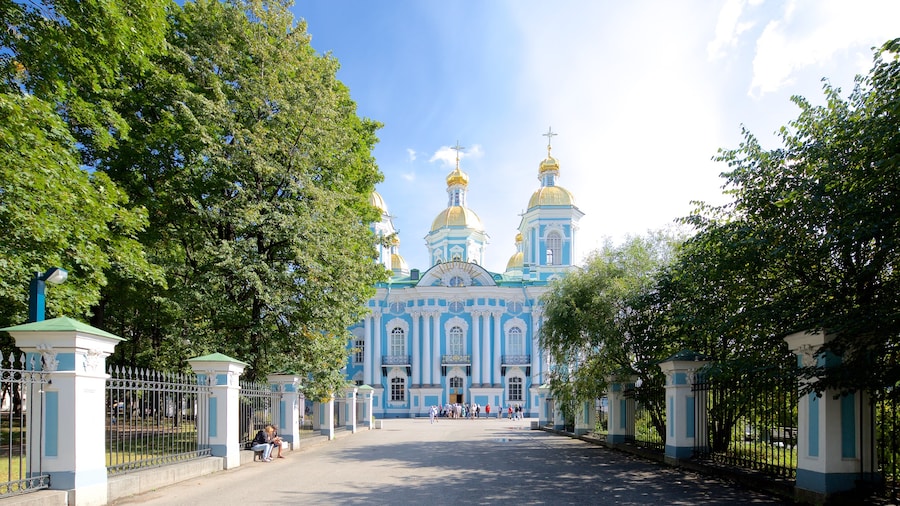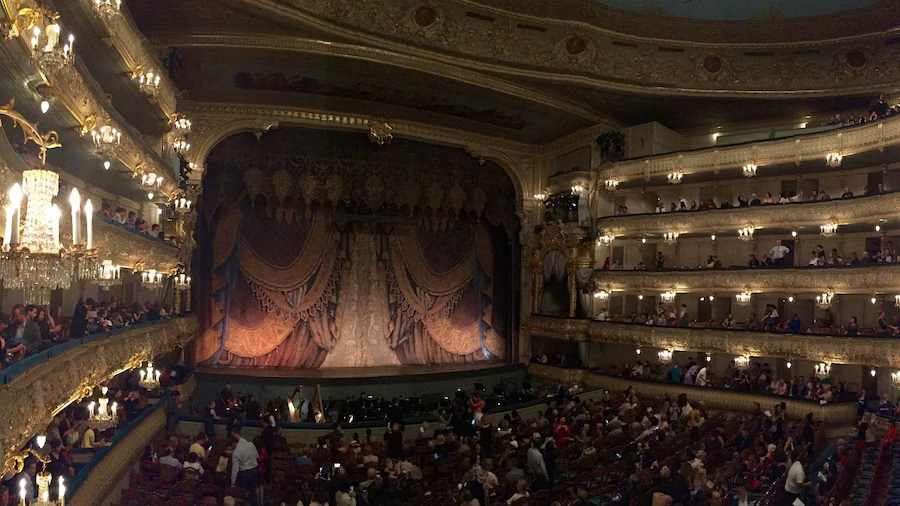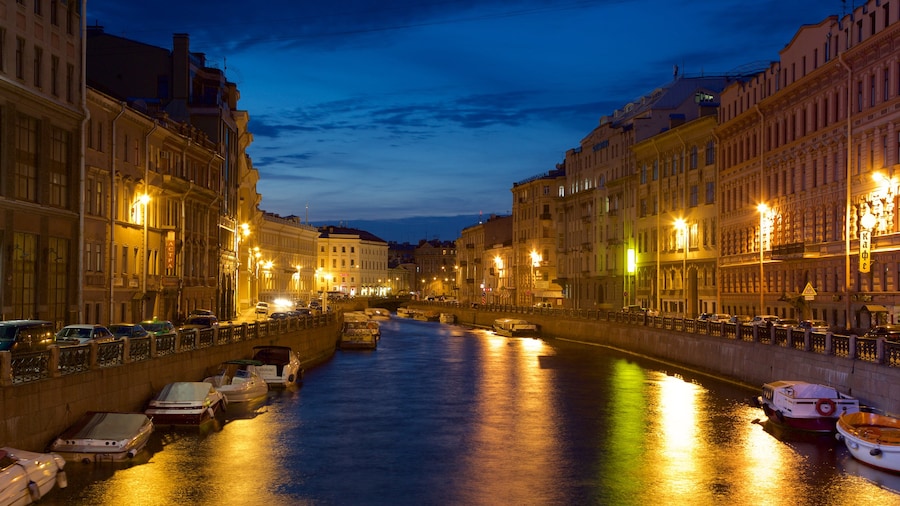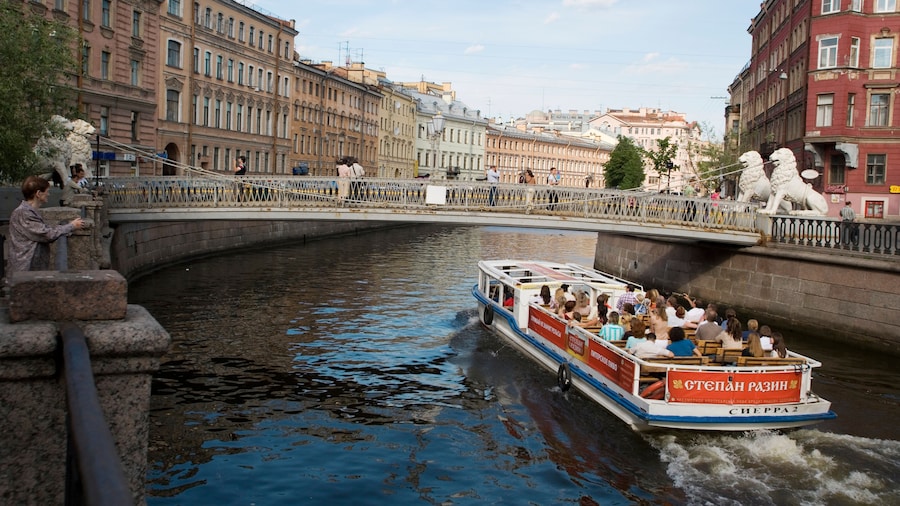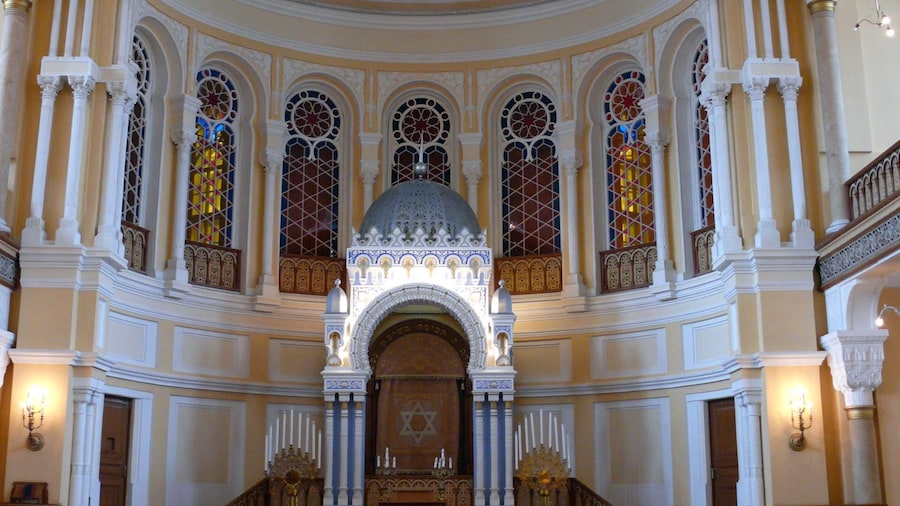The Trinity Cathedral has had a checkered past but has still managed to maintain its noble appearance. Discover its interesting collections of religious art and admire its striking architecture.
Although it has a very distinguished appearance today with its blue and gold cupolas, this cathedral actually began life as a makeshift church made out of a tent in 1733. It then upgraded to a wooden church structure, which was ruined in a flood. Eventually, eminent Russian architect Vasily Stasov designed a stone structure, which was built between 1828 and 1835.
Note how the building’s stunning white lower levels contrast sharply with the brilliant blue and gold cupolas on top. At its tallest, it reaches a height of 262.5 feet (80 meters). Capable of hosting 3,000 people, its interior once contained many valuable works of art, but many have been stolen or lost over the years.
Walk inside today and you will still see a surviving selection of religious paintings in gilded frames. It is still an insight into how a Russian Orthodox church is styled, even if not on as grand a scale as some of the larger St. Petersburg cathedrals. The Trinity Cathedral does still have some stately touches, such as its large column and a golden inscription and cross looking down on parishioners inside the church.
Back outside directly in front of the cathedral, pause to examine the Column of Glory, a memorial column commemorating Russian victory over the Turks in the late 19th-century. This is not the original monument but a replica of an earlier 19th-century edifice that was removed by Stalin in 1929. Look up to the top of the 95-foot (29-meter) column and you’ll see a winged Nike wielding an oak leaf wreath and a palm frond.
Access to the church is free and it is open every day. Take the metro to Tehnologichesky Institut and walk to the Trinity Cathedral.





